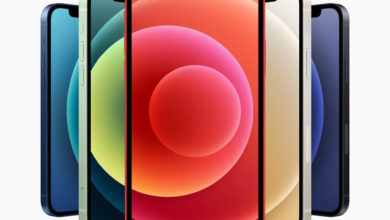How can Ethereum Improve Healthcare in 2021
Ethereum can help organizations grow IT platforms that connect quality and value with alternative payment models. Blockchains try to build a “single source of reality” different from conventional IT models, which can be accessed safely by their members. Because of the lack of ACO unique tools and legacy applications, ACOs are likely to become used in blockchain cases. Blockchain is not an interoperability panacea but provides a stable framework that supports advanced alternative payment methods when used in the right application. In this article, we will look at the problems faced by Healthcare and how, for example, through Ethereum, we can solve them very effectively with smart contract solutions. Cryptocurrencies have faced many ups and downs because of cannabis wealth.
Ethereum Smart Contracts
Smart contracts are business protocols or contracts powered by Blockchain, which automatically make the verification, compliance, and execution in the best possible way of digital transactions. Even without third parties, intelligent contracts allow transactions to take place. Different healthcare sector problems include rising numbers of patients, medication counterfeiting, intermediaries, administrative inefficiencies, and more. These problems can be solved by intelligent contracts driven by decentralized Blockchain applications. They will make it easier to move, recover, analyze and handle health information and data safe and effective.
Challenges in Healthcare
Administration Inefficient
Gross deficiencies and wastages govern public health sectors all over the world. In the USA, hospital billing and operating expenses splurge for a fifth of the budget. Readmission situations exacerbate further inefficiencies in healthcare management, improperly administered patient flux, inadequate communication, and delayed and delayed. Not only this, patients are spending a lot of time on appointments, chasing paperwork, completing forms, refilling requirements, and more. Even doctors and nurses spend hours working and doing administrative duties.
Integrity
IoT devices are difficult for medical professionals and health services to manage and secure patients’ health information, documents, and data. The stored data are often vulnerable to violations, hacks, and risks in centralized databases. In reality, malicious actors have, in some cases, stolen the health data of patients for marketing purposes. Then medical care fraud costs taxpayers billions annually. Furthermore, non-rendered billing for services, excess services and duplicate claims, and more are strong insurance fraud cases.
How Ethereum can Improve Healthcare
The overall healthcare industry’s ability to enhance organizational efficiency, patient data transparency, monitoring, traceability, and accountability can be increased further with an e-chain-based solution fitted with intelligent contracts. At Oodles, we provide solutions for Healthcare across blockchain networks and applications like Ethereum and smart agreements. We may adapt it to meet different healthcare challenges, including the following:
- Consent Management of Patient
- EHRs
- Traceability of Drugs
- Healthcare Supply Chain
- Secure Data
- MicroPayments
- Telemedicine
Telemedicine is an area where the whole health system is gaining momentum. It enables doctors to enter patients using electronics such as the WBANs, cell phones, and other IoT devices. This allows doctors to access patients. Telemedicine mostly allows chronic healthcare management, compliance with prescriptions, and the collection of real-time patient information.
These developments provide great help to enhance interoperability, reduce administrative inefficiency, and improve patients’ healthcare experience. However, the drawback to these solutions is that they are profit-making objectives for hackers too. In this respect, Blockchain smart contracts will play a crucial role in guaranteeing the protection and privacy of information for patients and other sensitive clinical data.
A blockchain health stakeholder consortium will use intelligent contracts to analyze, aggregate, and exchange network-wide data. Smart agreements will help us keep the data in an unchangeable state and ensure trust, accountability, and productivity. Overall, Blockchain such as Ethereum and smart contracts will ensure secure, stable, and transparent data storage in health care.
- Reconciliation
Smart contracts from Blockchain in the healthcare industry will also enable effective interoperability and patient information compatibility with a digital ledger. Health records and information. They can provide ways to transfer patients without taking several different forms from one hospital to another. You will allow your doctors to access your health records in the blockchain network. The racking of the care behaviors and data of patients for insurance claims may also be simplified. Smart contracts may also ensure that health standards and regulatory specifications are respected and complied with.
Simply put, the most successful technical advances to improve the health sector may be intelligent contracts and Blockchain. Although technology is emerging, the field of Healthcare will certainly be enhanced. They can have different capacities and rights for stakeholders that eventually revolutionize the industry. Superior encryption and authentication are provided with smart contracts. Thus, users can be sure that their details, including other benefits, are secure, confidential, and attack-proof.







